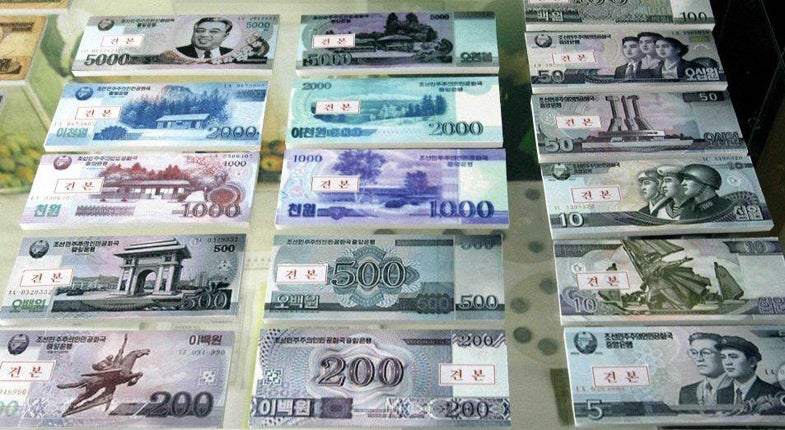North Korean blamed for currency crash is executed
Finance chief shot by firing squad after botched revaluation scheme

The reported mastermind of a disastrous currency reform that wiped out the savings of impoverished North Koreans and caused chaos and starvation has been executed in what appears to be a desperate attempt to head off social unrest.
Pyongyang's top financial official, Pak Nam Ki, who was sacked from his post in January, was hauled before a firing squad last week after being found guilty of "conspiring to destroy the national economy", sources quoted by South Korea's Yonhap Agency said.
Mr Pak is considered the architect of last year's botched revaluation, which at a single stroke knocked two zeros off the North's nearly worthless currency, crippled the country's markets and badly mauled the government's reputation for financial competency.
Aimed at reining in the market and the growing power of the North's business class, the abrupt initiative dramatically backfired. Millions of Koreans were given less than a week to swap their savings for the new won, sparking inflation and a desperate scramble for dollars and Chinese yuan.
South Korean sources say the blunder even forced the leader Kim Jong-il into making a rare public apology in February. "There is no doubt that the reform has badly hurt the Kim government," said Youngkwan Yoon, professor of international relations at Seoul National University. "There are now many reports indicating social problems and discontent in the North."
Professor Yoon and other observers believe Mr Pak, who was seen on state TV by Mr Kim's side as late as January, was made a scapegoat for the policy, which was almost certainly authorised higher up the leadership chain. Pyongyang announced his death with a telling rhetorical flourish, criticising his bourgeois background as a "son of a big landowner", according to Yonhap.
Pyongyang watchers warn that the devaluation has weakened the Kim regime's grip on power as it prepares to hand over the keys of the hereditary dictatorship to the leader's son and reputed heir, Kim Jong-un. The regime's problems have been worsened by dwindling international aid and tough UN sanctions imposed after a nuclear test last year. Mr Kim Sr, visibly ailing following a reported stoke, is reported to be struggling to keep the country and its military machine under control.
The North's government has a history of ruthlessly punishing high officials who have fallen from favour. In the 1990s, it was said to have publicly executed a top agricultural bureaucrat following a famine that may have killed two million people.
With public opinion moving against the regime, the latest execution may accelerate the crisis in the country's leadership ahead of Mr Kim's death, which is now being openly predicted. Last month, the assistant US Secretary of State for East Asian and Pacific Affairs, Kurt Campbell, said that Mr Kim has as little as three years to live, based on the available medical evidence.
Join our commenting forum
Join thought-provoking conversations, follow other Independent readers and see their replies
Comments